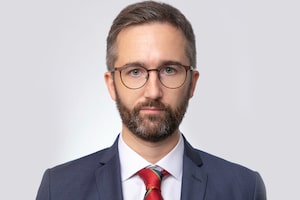The body of former Japanese prime minister Shinzo Abe, who was shot while campaigning for a parliamentary election, is driven through Tokyo after his funeral at Zojoji Temple, July 12, 2022.ISSEI KATO/Reuters
Shinzo Abe, Japan’s longest-serving prime minister, made a final passage through Tokyo Tuesday and was laid to rest after being gunned down last week.
Thousands of people thronged the streets of the Japanese capital to watch the black hearse carrying Mr. Abe’s body pass by. Some mourners bowed or clasped their hands, while others shouted out thanks for his contributions to the country.
Mr. Abe was shot in the city of Nara while campaigning for a Liberal Democratic Party candidate in Sunday’s upper house elections. The party went on to score a convincing victory days after its former leader’s death, opening a path to finally realizing Mr. Abe’s longstanding goal of changing the country’s pacifist constitution.
Friday’s events appalled and dismayed Japan, striking at the heart of the country’s image as a safe and stable democracy. That Mr. Abe was killed with a gun in a country where firearms are tightly regulated and shootings are almost unheard of only added to the shock.
On Monday evening, hundreds of mourners gathered at a temple in central Tokyo where Mr. Abe’s funeral was to be held. Tributes poured in from around the globe. After paying his respects, Prime Minister Fumio Kishida said “a great leader loved by the world has been lost.”
He promised to fulfill Mr. Abe’s goals, including amending the constitution, and encouraged the country to pull together “and strive to ensure the prosperity and security of Japan.”
The latest updates on Shinzo Abe's assassination
Canada’s ambassador to Japan, Ian McKay, and U.S. Treasury Secretary Janet Yellen also attended Mr. Abe’s wake. Mr. McKay said the “world has lost a great man” and described Mr. Abe as “a visionary leader for Japan, a global statesman and a great friend to Canada.”
On Monday, Japan posthumously awarded Mr. Abe the Collar of the Supreme Order of the Chrysanthemum, the nation’s highest decoration. Emperor Naruhito and Empress Masako also sent flowers and incense.
More revelations have emerged in the day’s since Mr. Abe’s killing about the man who shot him, 41-year-old Tetsuya Yamagami.
An unemployed veteran of the navy, Mr. Yamagami reportedly told police that he resented Mr. Abe for his involvement with an unspecified religious group. The assassin blamed the group for bankrupting his mother and driving the family apart.
While police have yet to name the group, on Monday the Unification Church – also known as the Moonies, after founder Sun Myung Moon – confirmed that Mr. Yamagami’s mother was a member.
Tomihiro Tanaka, president of the Japanese branch of the church, told reporters that the woman – whom he did not name – first joined the church in the late 1990s but stopped attending services around 2009.
About two or three years ago she re-established ties with church members and began attending events about once a month, Mr. Tanaka said. He would not comment on donations she may have made but said the church had learned of her financial difficulties after talking to people close to her.
Nara police said Monday that they had found what appeared to be bullet holes at a facility run by the church and that the suspect told them he had fired practice rounds there the day before he shot Mr. Abe.
The Unification Church was founded in South Korea in 1954 by Mr. Moon, a self-declared messiah and strident anti-communist. The church’s affiliates include daily newspapers in South Korea, Japan and the United States. Mr. Moon also founded the conservative Washington Times newspaper.
Mr. Tanaka said that neither Mr. Yamagami nor Mr. Abe were members of the church, but he confirmed that the former prime minister had sent messages to events held by church affiliates and expressed support for its global peace movement.
Mr. Abe’s party has long had close ties to the church, seeing it as a reliable source of conservative votes. Mr. Abe’s father and grandfather both cultivated relationships with the church and helped it expand in Japan, something Mr. Yamagami reportedly cited as a reason for killing the former premier.
Mr. Yamagami’s own religious views are unclear. Some Japanese media have linked him to an offshoot of the Unification Church, founded by the late Mr. Moon’s son, Hyung Jin Moon, which has recently been expanding in Japan.
The Pennsylvania-based World Peace and Unification Sanctuary Church – also known as the Rod of Iron Ministries – is notorious for its affinity for guns, with members taking part in religious ceremonies while holding assault weapons.
In a statement, the church’s Japanese arm said it “had no contact or relationship” with the killer and denounced those with “the evil intention of linking Yamagami’s crime with a gun to our Sanctuary Church.”
With files from Reuters
Our Morning Update and Evening Update newsletters are written by Globe editors, giving you a concise summary of the day’s most important headlines. Sign up today.
 James Griffiths
James Griffiths